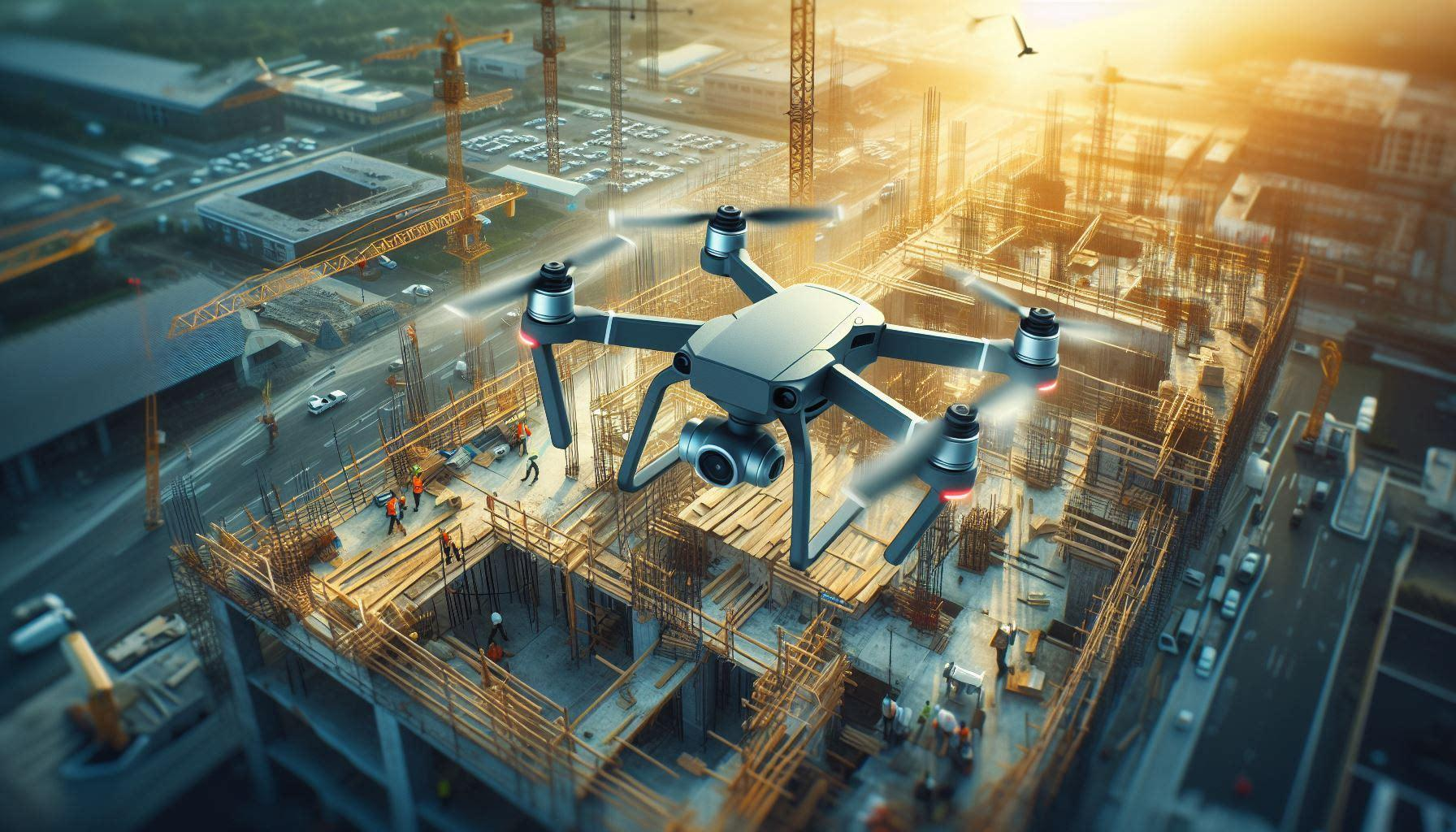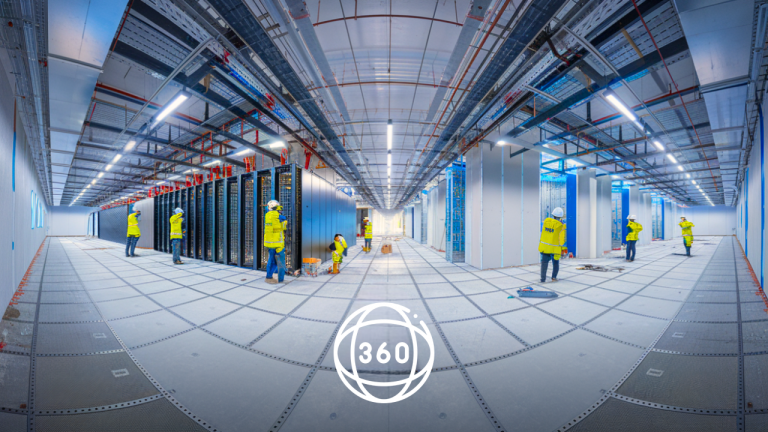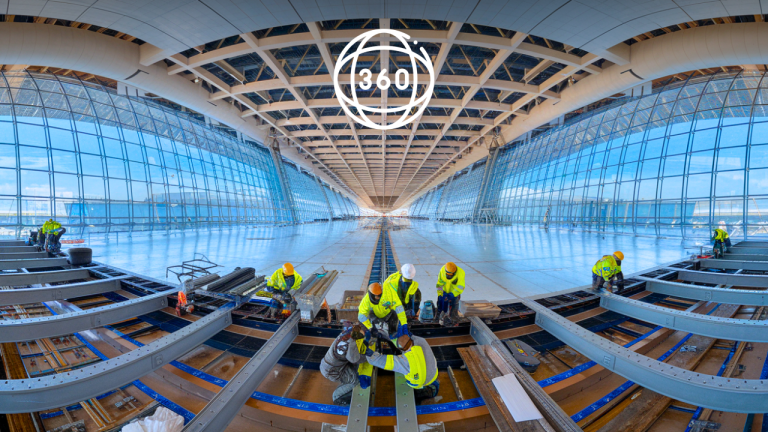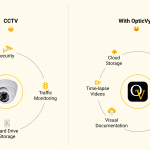Are you tired of dealing with the inefficiencies and delays that often cause delays in construction projects? Are you looking for a way to streamline your project management and decision-making process? Look no further than the revolutionary technology of drones in construction.
Construction projects are infamous for their complexity and the challenges they present. From managing resources and schedules to ensuring safety and quality, there’s no shortage of obstacles to overcome. Traditional methods of monitoring progress, such as manual inspections and on-site visits, are time-consuming and prone to errors and delays.
Enter drones in construction. These unmanned aerial vehicles offer a game-changing solution to many challenges construction professionals face. By harnessing the power of aerial views and real-time data collection, drones provide invaluable insights that empower better decision-making and more efficient project management.
In this article, we’ll explore the top 10 benefits of using drones in construction. From enhancing safety and precision to improving productivity, you’ll discover how this cutting-edge technology revolutionizes the construction industry.
Before diving into the benefits of construction drones, look at these global construction drones’ market size statistics. These statistics can help you understand how valuable drones in construction will be in the future.
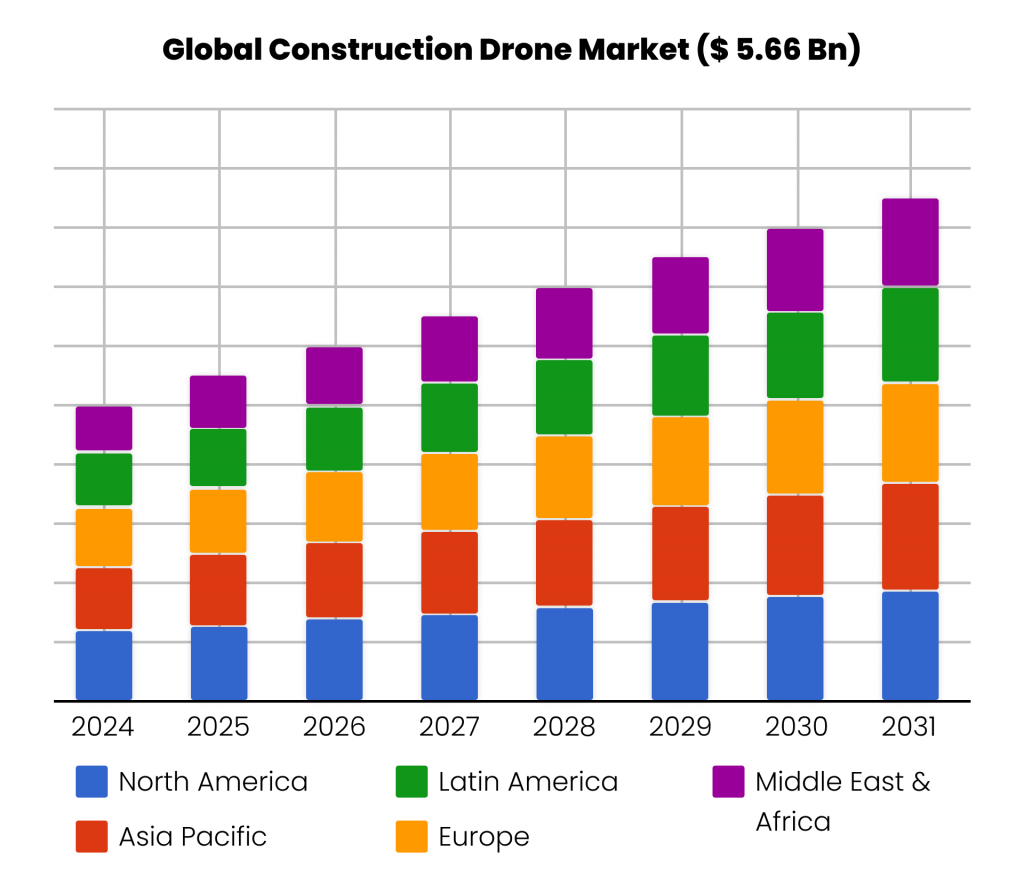
Now, let’s dive into the top 10 benefits of using drones in construction:
Enhanced Safety
Safety is paramount in every aspect of construction project work. Yet, traditional methods of monitoring construction sites often expose workers to unnecessary hazards and risks. Drones step in as a game-changer here, significantly enhancing safety protocols on construction sites with their capability to access hard-to-reach areas and provide real-time insights.
Improved Accuracy
Drones have revolutionized the construction industry with advanced technology and precise aerial photography capabilities. One of the key advantages they offer is unparalleled accuracy in data collection and measurements. By capturing high-resolution images and generating detailed maps, drones provide construction professionals with precise insights into their projects. This accuracy not only ensures greater precision in planning and execution but also helps detect potential issues early on, saving time and resources.
Cost Savings
When it comes to construction projects, every delay can translate to increased costs and missed deadlines. However, with the advent of drones in construction, the industry is experiencing a significant transformation. These unmanned aerial vehicles are not just about capturing stunning aerial footage; they are powerful tools that can power up project management and cost-saving strategies. By optimizing workflows and minimizing downtime, drones help reduce overall project costs, making construction more affordable and efficient.
Faster Progress Monitoring
With drones, project managers now have access to a better level of progress monitoring that was previously unimaginable. By leveraging drones, construction teams can receive real-time progress updates, allowing them to monitor activities and address any issues promptly and closely. This ensures that projects stay on track and schedule, leading to smoother project execution and timely completion.
Efficient Resource Management
One of the key advantages of integrating drones into construction workflows is their ability to facilitate efficient resource management. By leveraging drone technology, construction companies can pinpoint potential bottlenecks and optimize resource allocation with precision. This ensures that resources are utilized more effectively and leads to a significant boost in productivity and profitability.
Environmental Impact
Drones, with their ability to soar gracefully above construction sites, offer more than just a bird’s-eye view of progress. They contribute significantly to reducing the carbon footprint of construction projects, thus making them more sustainable and eco-friendly. By minimizing the reliance on heavy machinery and diminishing fuel consumption, drones play a pivotal role in mitigating environmental harm.
Enhanced Communication
Drones serve as more than just aerial observers; they act as powerful conduits for sharing vital information and fostering collaboration throughout the project lifecycle. Drones capture comprehensive visual documentation and generate real-time progress reports. They bridge the communication gap between teams, contractors, and clients. This transparency not only fosters trust but also encourages a collaborative environment where all parties are aligned toward a common goal.
Remote Accessibility
Staying connected and informed about project progress is paramount. Thanks to advancements in drone technology, project managers now have the power of remote monitoring at their fingertips. With drones hovering above construction sites, they act as vigilant sentinels, relaying real-time data and visuals to project managers wherever they may be. This remote accessibility not only streamlines communication but also fosters flexible work arrangements. Gone are the days of frequent on-site visits, as drones provide a comprehensive view of construction activities from the comfort of an office or even a mobile device.
Improved Quality Control
Drones facilitate regular inspections and assessments of construction work, ensuring adherence to stringent quality standards and specifications throughout the project lifecycle. These aerial marvels provide a bird’s-eye perspective that’s unparalleled, capturing intricate details and uncovering potential issues that might go unnoticed through conventional inspection methods.
Competitive Advantage
In today’s fiercely competitive construction landscape, companies constantly seek ways to stand out in the market and attract discerning clients. One such avenue for gaining a competitive edge lies in the strategic adoption of drone technology. Drones have transcended their initial novelty to become indispensable tools for construction professionals. By leveraging drones effectively, companies can position themselves as industry leaders who prioritize innovation and efficiency. These forward-thinking firms are not just keeping pace with the competition; they’re setting new standards that resonate with clients seeking cutting-edge solutions.
Conclusion
The benefits of using drones in construction are undeniable. From enhancing safety and accuracy to improving productivity and sustainability, drones offer multiple advantages that can transform the planning and execution of construction projects. By embracing this cutting-edge technology, construction professionals can stay ahead of the curve and drive success in an increasingly competitive industry.
So why wait? Embrace the future of construction today with drones in construction. Experience the difference firsthand and unlock the full potential of your projects.

